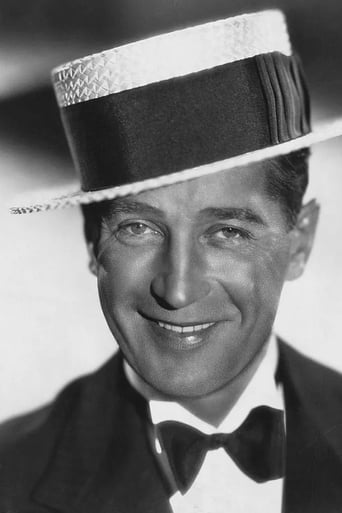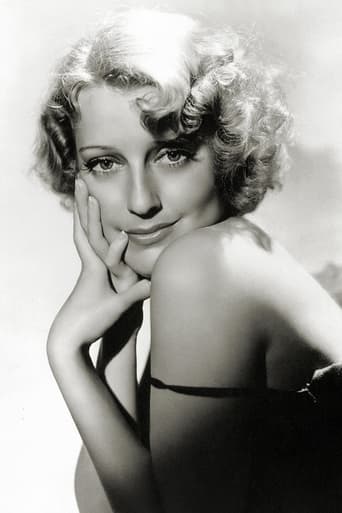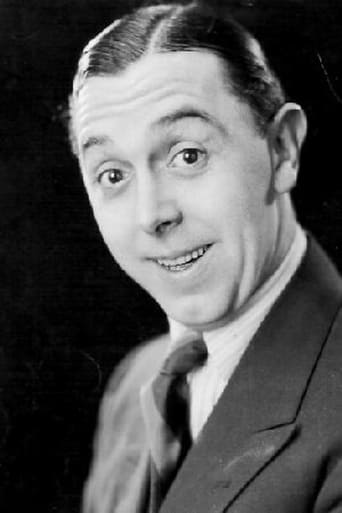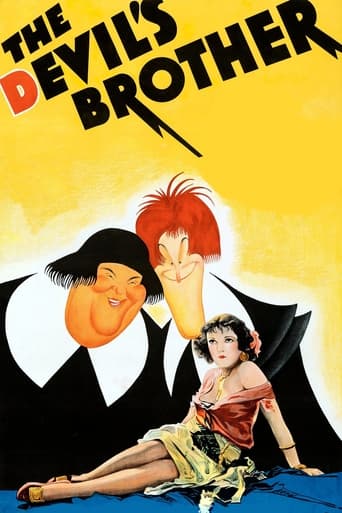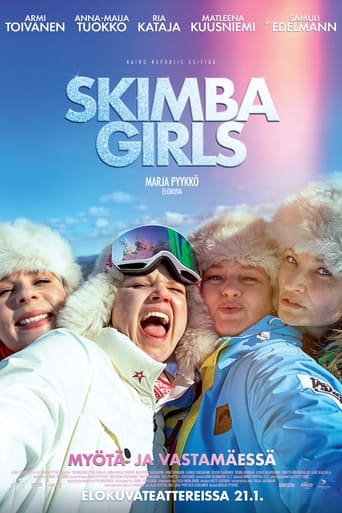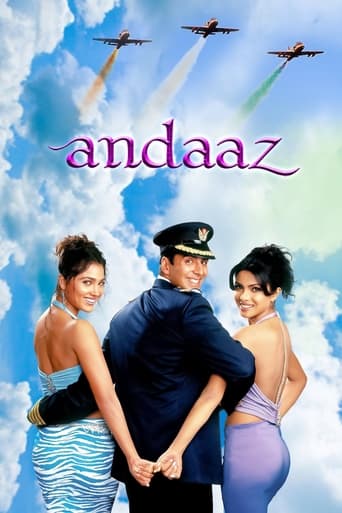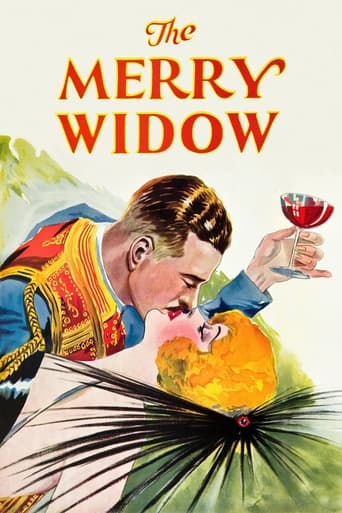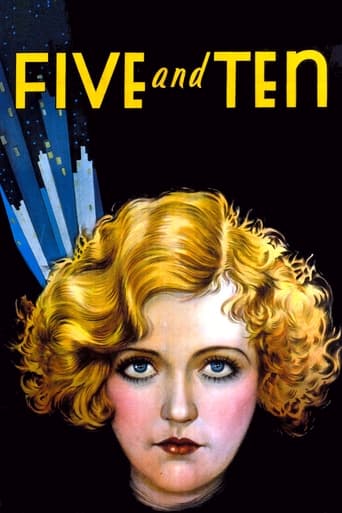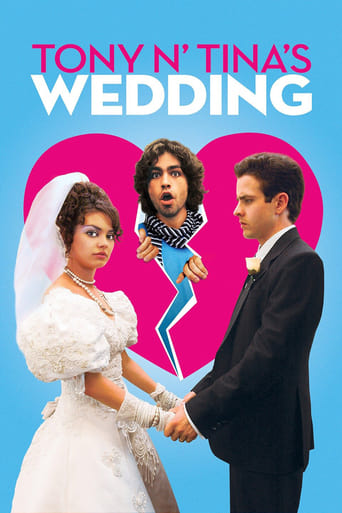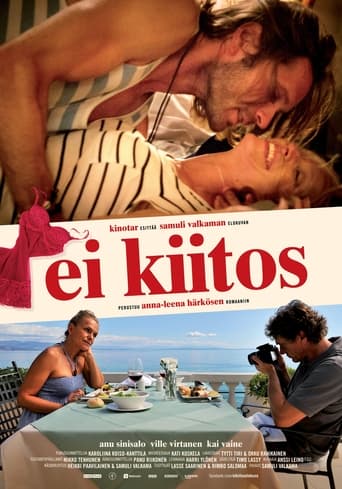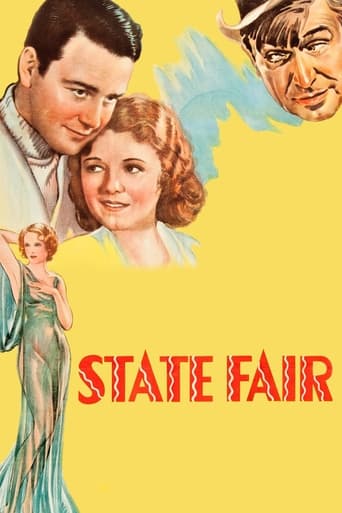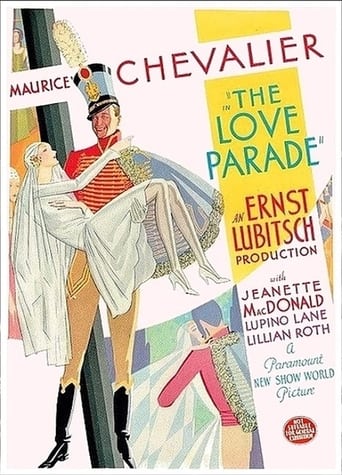
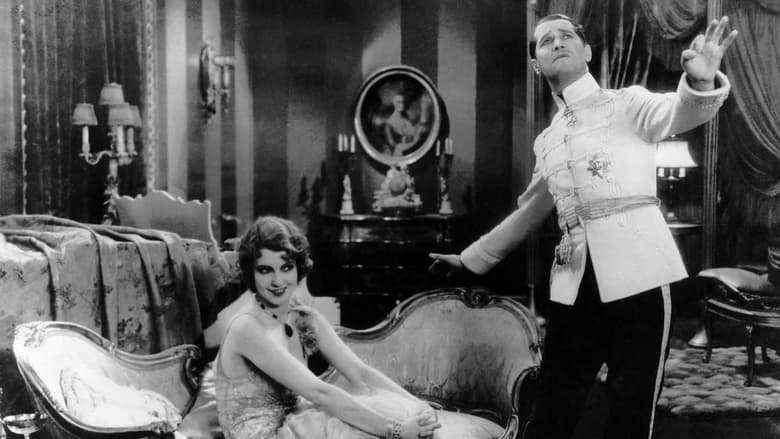
The Love Parade (1930)
The queen of mythical Sylvania marries a courtier, who finds his new life unsatisfying.
Watch Trailer
Cast


Similar titles
Reviews
When Criterion released its Lubitsch Musicals set a few years ago, I watched and really loved the other three films, and meant to get around to a second viewing of The Love Parade. I failed to do that until now. Well, it's awesome. The best of those four films, and that's saying a Hell of a lot. This rivals my favorite Lubitsch film, Trouble in Paradise. He was one director who really understood right away how to use sound. This was his first talkie, and most consider it the first musical where the songs drive the plot, instead of the classic revue/Broadway show type of musical like The Broadway Melody or The Hollywood Revue of 1929, both of which were so impressive to people at the time that they were nominated for Best Picture (with The Broadway Melody winning, of course). The Love Parade was also nominated, but not until the next year, since it didn't get a Los Angeles release until January of 1930 (and it lost, of course, to All Quiet on the Western Front). Maurice Chevalier plays a philandering count who gets kicked out of Paris. He retreats to his homeland of Sylvania, whose queen (Jeanette MacDonald, in her film debut) is being pressured to marry by her cabinet (it will look good and perhaps convince other countries to give them loans). Chevalier isn't the marrying kind, but the queen is all kinds of beautiful, so he relents. Unfortunately, his new position holds no power whatsoever - he's a mere figurehead - and it upsets his male pride. This is an absolutely charming film. Chevalier and MacDonald are both hilarious, as are all the other characters (their servants, played by Lupino Lane and Lillian Roth, who have a romance of their own, are particularly wonderful), the European royalty settings are gorgeous to look at and the songs are great. The only minor problem is that occasionally, given the primitive recording techniques, some of the dialogue and songs can be difficult to understand. Still, a masterpiece.
An excellent print. I saw this back in the early 90's on the American movie channels first annual film preservation film festival ,befor it went down hill. I was disappointed that they did not include the vagabond King. At the time it was found intact.Maurice plays an official to the royal government having a good time in Paris.But he's spied on by other officials when he is caught having an affair with a married women by her husband and she pretentiously tries to commit suicide. After things are straightened out , he's caught by a main official and is scolded and he is demanded to go back to his Country to be punish by his queen who's is unmarried. Every body is pressuring her to get married cause her country is bankrupt and they need a loan. Once she sees Maurice and he see's her they fall for each other.After they get married she treats him like a dog having nothing to do . His servant played by Lupino lane and her servant played by Lilian Roth ,who also was in the vagabond king,fall for each other too.He gets frustrated that when he presents to her the country's budget stating that they need no loan that hes was writing for weeks. She and her counsels get angry at him for suggesting it . The marriage goes on the rocks. He want to leave. But she begs him to stay to go with her to the opera.Surprises her to come back at least until the bill is sign. In the end they made up. A song that was written for the movie became a standard ,"dream lover. Which paramount would use the song and music over again on some of their other pictures. the story and the acting was good unlike some movie musical of the time.
It was really the film that established Maurice Chevalier and Jeanette MacDonald as a musical comedy team - the first one of the American talkie period. They would make four films in the end (THE LOVE PARADE, ONE HOUR WITH YOU, LOVE ME TONIGHT, and THE MERRY WIDOW). Four first rate early musicals... and they did not like each other! Jeanette rebuffed Chevalier's attempts at a closer relationship (she only liked Gene Raymond, whom she later married). He considered her a prude and hypocrite as a result. So, despite their stunning screen chemistry and string of successes their partnership faded. Nelson Eddy was waiting in the wings for her to find the proper partner.Chevalier is a Count who has been returned from a diplomatic post for a sexual scandal. The country is ruled by Queen Jeanette, and when she meets the charming Maurice she falls for him. They marry, but he finds that (under the guidance of her Prime Minister - Lionel Belmore - and his cabinet) she puts him aside on matters of ruling the state. Chevalier, normally the aggressor in sexual matters and in putting his own ideas out, does not like the self-image of being the boy-toy husband of the ruler of his native country. His idea would be more like that of Prince Albert, Queen Victoria's husband, who became her chief adviser on political matters after their marriage. Here, however, while everyone is polite to him, they make it clear that constitutionally he is not to be involved in running the government.The film is a charming one - full of those "Lubitsch touches". For example, Chevalier's growing anger and impatience at his political uselessness is first shown when he asks one of the courtiers (who has just politely put him in his place), "Do you understand French?" "No, I'm afraid I don't.", says the courtier. Chevalier, with perfect timing, shoots out a long, furious diatribe of French, which one can tell is gutter language, to show his fury at his position - much to the dismay of the courtier. Later on, when the Prime Minister also puts down Chevalier's attempts at advice, he smiles and asks the Prime Minister, "Excuse me, but do you speak French?" Belmore looks at him puzzled, "Yes I do speak French." With an eat dirt smile, Chevalier says, "What a pity!" In the end, it is a financial crisis (which with typical Lubitsch humor can only depend on the foreign investors in Sylvanian securities, all of whom have to observe the reactions of the Afghan Ambassador - bearded Russ Powell - to a court function) that gives Chevalier his chance. Chevalier will only show his true love for his wife if she and the cabinet give him a voice in public affairs like Prince Albert had. And they give in.It would not be the last visit Hollywood paid to Sylvania. Unlike other Balkan pseudo-states, it actually reappeared four years later, though under more "sinister" circumstances. In 1933 the Sylvanian Ambassador to a neighboring country tried to use underhanded means to bring about it's annexation by his homeland. However, Ambassador Trentino (Louis Calhern) did not count upon the Dictator of Freedonia (Rufus T. Firefly - Groucho Marx) and his three brothers to force him to surrender in a barrage of vegetables and fruit in DUCK SOUP.
Domestic difficulties between the strong-willed Queen of Sylvania and her stubborn Consort may cause them both to miss THE LOVE PARADE.Director Ernst Lubitsch spread his special brand of sophisticated naughtiness in this visually impressive & engaging early talkie musical. Depending much on the intelligence of the viewer, the film serves up unexpected bons mons of wit (e.g. the dog barking his farewells to the pooches of Paris) which never fail to enchant. Lubitsch would contribute a series of delightful little comedies over the next several years, making the title of this confection pertinent in more ways than one.Maurice Chevalier practically oozes Gaelic charm in a wonderfully hammy, ingratiating performance. His French charisma dominates the screen; he embraces his songs rather than just singing them. His immense joie de vivre & exceptional talent was perfectly attuned to the sound motion picture. In her film debut, the lovely Jeanette MacDonald proves a charming partner to Chevalier. Imperious or coquettish by turns, she beguiles the viewer as well as Maurice--her celebrated voice (when intelligible) put to good use in the seduction.British physical comedian Lupino Lane is a winner as Chevalier's highly energetic little valet; lanky Lillian Roth, as a palace maid, joins him for some humorous knockabout songs. Lionel Belmore & Eugene Palette bring appropriately hefty gravitas to their roles as government ministers. Diminutive Edgar Norton appears as an unflappable majordomo.Movie mavens will recognize silent screen comic Ben Turpin as a cross-eyed lackey, Russ Powell as the Afghan Ambassador and young Jean Harlow as one of a group of women applauding Chevalier at the theatre, all uncredited.


